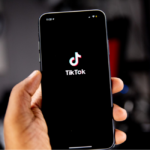Selecting the best retail consultancy is incredibly important. The expertise and guidance they provide can make or break your success. So to ensure you’re on the correct path, you need to ask all the right questions upfront, leaving no stone unturned.
Introducing: Sophelle’s comprehensive Retail Consultancy Interview Guide—an indispensable tool in your quest for the ideal consultancy.
We understand that making the right choice is crucial, and that’s why we’ve compiled this extensive list of questions. With this guide in hand, you’ll have all the critical questions to ask, boosting your confidence during the interview process. Your retail success story begins here, with the assurance that you’re working with the right team from the very start.
Consultancy’s Expertise and Experience
1. Expertise: Begin by understanding the consultancy’s expertise in your project domain, whether it’s IT strategy, marketing, or any other area relevant to your needs.
- Can you provide a detailed description of your company’s expertise in our project domain, which is [specify the domain]?
2. Experience: Inquire about their experience in terms of both years in the industry and the number of similar projects they’ve successfully completed. Additionally, ask if they have worked with your current and future application stack.
- How many years has your consultancy been active in [project domain]?
- Can you share some examples of projects in [project domain] that you have successfully completed?
- Could you elaborate on your experience with our current and future application stack? (Please provide details of the stack)
3. Client Success: Find out which of their clients they’ve helped with projects similar to yours and which team members were involved in these successful projects.
- Can you name some clients for whom you have successfully completed projects similar to ours?
- Which team members were involved in these successful projects, and what roles did they play?
Vendor Team
4. Team Operations: Gain insights into how the consultancy’s team operates, especially in terms of remote work and specific activities like interviews and presentations.
- Could you describe how your team typically operates, especially in terms of remote work?
- Which specific activities will be conducted remotely, and which ones on-site (if any)?
5. Team Members: Request information about the proposed team members, including their names, titles, roles on the project, employment status (dedicated or contract), years with the company, years in the industry, and their experience on similar projects.
- Please provide the names, titles, and roles of the team members proposed for our project.
- Are these team members dedicated to our project or on a contract basis?
- How many years have these team members been with your company, and what is their overall industry experience?
- Can you share their specific experiences on similar projects?
6. Meeting Opportunities: Identify team members you can meet before project execution and those you can meet in person during the project. Determine your primary project contact and inquire about the involvement of an executive sponsor.
- Which team members can we meet before the project officially starts?
- Will there be opportunities to meet team members in person during the project?
- Who will be our primary point of contact throughout the project?
- Does an executive sponsor from your consultancy play an active role in our project?
Consultancy Information
7. Business Details: Understand whether the consultancy is public or private, and if private, inquire about the principals. Find out how long they have been in business and where their headquarters are located.
- Is your consultancy a public or private entity, and if private, can you share information about the principals?
- How many years has your consultancy been in operation?
- Where is your company’s headquarters located?
8. Resources and Growth: Explore the location of their project team resources and whether time zone differences may affect communication. Get information on the total number of employees, recent revenue, profit, and growth in the last year.
- Where are the resources for the project team located, and are there potential time zone differences affecting communication?
- What is the total number of employees in your organization?
- Could you provide details on your most recent year’s revenue and profit?
- What was the growth percentage of your consultancy in the last full year?
9. Client Base: Discover the number of clients they have, both in the past 12 months and throughout their company’s history. Assess whether they have clients of a similar size and within your industry and segment.
- How many clients have you served in the past 12 months?
- What is the total number of clients in your company’s history?
- Have you worked with clients similar in size and within our industry and segment?
10. Financial Relationships: Inquire about any financial relationships the consultancy has with other companies, such as reseller or referral arrangements.
- Do you have financial relationships with other companies, such as reseller or referral agreements?
11. Business Insurance: Determine the types of business insurance they carry, ensuring they meet your requirements.
- What types of business insurance do you carry, and do they meet our specific requirements?
Project Information
12. Project Timeline: Verify if the consultancy can meet your project’s start and end dates. Understand the methodology they follow, the activities they will conduct, and the deliverables they will provide. Ensure you will own all deliverables without restrictions.
- Can you confirm that you can meet our project’s start and end dates?
- What methodology does your consultancy follow for project execution?
- Could you provide a detailed breakdown of the activities you will conduct and the deliverables you will provide?
- Will we have unrestricted ownership of all project deliverables?
13. Sample Deliverables: Ask if the consultancy can provide sample deliverables from previous projects.
- Can you share sample deliverables from similar projects?
Flexibility
14. Scope Changes: Explore how changes in scope are addressed during the project and how easily additional resources can be added or team size decreased. Assess your control over swapping out underperforming resources and whether they can make resource changes without your approval.
- How does your consultancy handle changes in project scope during the course of the project?
- In what timeframe and with what ease can you ramp up additional resources if needed?
- How can the team size be decreased if necessary?
- What level of control do we have in replacing under-performing resources, and can you do so without our approval?
Contractual
15. Pricing and Terms: Learn how pricing is determined (e.g., fixed-price, time-and-materials) and the duration of price validity. Understand the payment terms and the requirements for contract termination for convenience. Inquire about invoicing frequency and any penalties for late deliverables.
- How is the pricing structure determined (e.g., fixed-price, time-and-materials)?
- For how long are the quoted prices valid?
- What are the specific payment terms and invoicing frequency?
- What is the process and cost involved in terminating the contract for convenience?
- Are there any penalties for late deliverables?
Project Governance
16. Governance Process: Evaluate the project governance process the consultancy brings, including approvals, communications, and the potential presence of a steering committee. Ensure that roles and responsibilities are clearly defined, and establish the cadence of communications and meetings.
- What specific project governance processes does your company bring to the table, including approvals and communication protocols?
- Will there be a steering committee involved in our project?
- Are roles and responsibilities clearly defined, and can you provide a schedule for project communications and meetings?
Project Tools
17. Tool Compatibility: Determine if the consultancy’s team is willing and able to use your preferred tools and inquire about the project tools they offer. Assess whether there are additional costs for tool licenses and the level of support provided for these tools.
- Are your project team members willing and able to use our preferred tools? (Please specify the tools)
- What project management and collaboration tools does your consultancy offer?
- Are there additional costs associated with using your consultancy’s tool licenses?
- What level of support do you provide for the tools you offer?
Client Requirements
18. Project Success: Understand what is required from your end as the client to ensure project success. Clarify the expected time commitments from your team members and assess whether any competitive issues exist with existing vendor clients.
- What specific requirements or contributions are expected from our end as the client to ensure the success of this project?
- Can you provide an estimate of the expected time commitments for each member of our team?
- Are there any potential competitive issues with any of your existing vendor clients that we should be aware of?
We hope this guide empowers you to make an informed decision when selecting the consultancy that best aligns with your business’s unique needs. For more information or personalized assistance, please reach out to our team directly.
And if you’re ready unlock the full potential of your retail business with a highly experienced consultancy you can trust, connect with Sophelle today.




